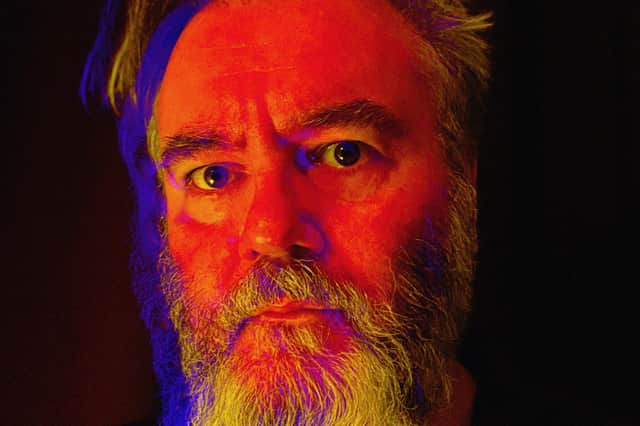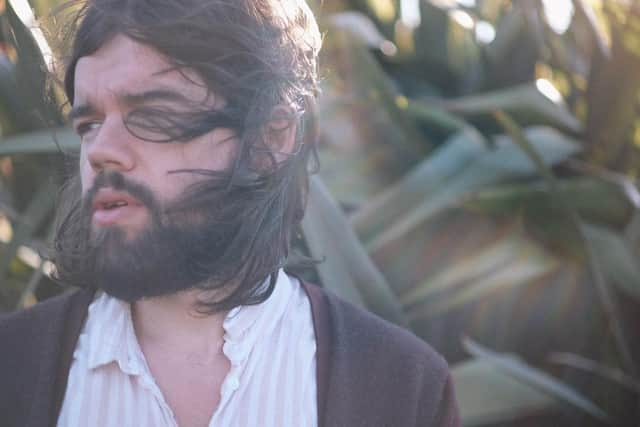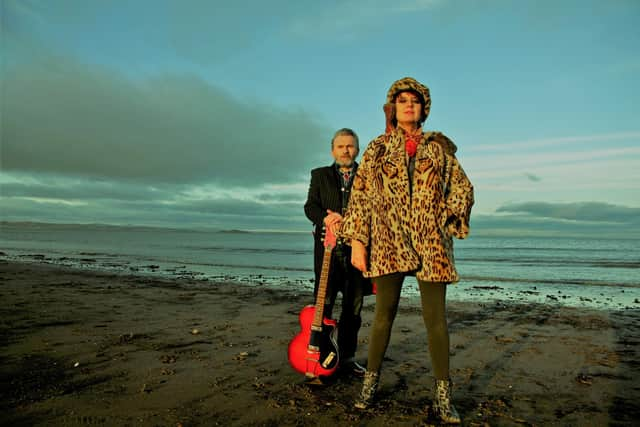Album reviews: Nyx Nótt | Andrew Wasylyk | The Countess of Fife: Star of the Sea


Nyx Nótt: Themes From (Melodic) ****
Andrew Wasylyk: Hearing the Water Before Seeing the Falls (Clay Pipe Music) ****
The Countess of Fife: Star of the Sea (self-released) ****
Arab Strap frontman Aidan Moffat returns in curveball composer guise with a second album as Nyx Nótt, his instrumental incarnation named after the Greek and Norse goddesses of the night which, in turn, developed out of his L.Pierre alter ego, fashioning evocative soundtracks based around samples of TV and film library music.
Advertisement
Hide AdAdvertisement
Hide AdMoffat has expanded on his original plan to create a succession of 90-second snippets of putative TV theme music to produce a collection of longer form pieces ranging more widely than the nocturnal transmission of debut album Au Pieds de la Nuit. That album featured a track called Theme From, conceived as the soundtrack to an imaginary Netflix show. Themes From advances that concept, with Moffat retroactively titling each piece after the genre style it evoked.
There is a fairly consistent sense of pace running through the album, with rhythmic samples as a building block. Opening track Docudrama is a lavishly realised electro-acoustic composition with a hint of Michael Nyman minimal patterning and curt string flourishes. Porno is low-slung, cymbal-heavy, with a keening loop and some sleazy brass dappling while Thriller is propelled by the metallic clatter of percussion, soft shuffle of drums and dramatic flourish of strings.
The jazz-influenced drumming persists through Caper, embellished with tinkling keys, tremulous strings and some supremely groovy brass – this caper is a glamorous Sixties affair, probably starring Peter Sellers. Swashbuckler inevitably features a martial drumbeat and a hint of Great Escape triumphalism before the pace drops to a languorous amble, with graceful jazz brass and woodwind shapes on Hardboiled.


It would have been easy enough to create a modern noir soundtrack but none of this is pastiche. Tearjerker is a sonorous ballad, pairing forlorn strings with glitchy atmospherics rather than any lachrymose heartstring-tugging, while Actioner uses a choral vocal loop and plangent drumming to stealthy, foreboding effect in another fine atmospheric odyssey.
Andrew Wasylyk hails from a similar indie background to Moffat – he currently plays bass guitar in Idlewild, while accepting composition commissions as a solo instrumentalist. Wasylyk’s music is similarly evocative to Moffat’s but comprises live instrumentation, including guest saxophonist Angus Fairbairn, aka performer Alabaster DePlume, and string arranger Pete Harvey of the band Modern Studies on this latest outing.
While Moffat courts the crepuscular, Wasylyk celebrates the wonders of nature. Hearing the Water Before Seeing the Falls was inspired by the work of US landscape photographer Thomas Joshua Cooper, with Wasylyk commissioned to respond to his exhibition The World’s Edge at the Scottish National Portrait Gallery in Edinburgh, and join Cooper at a retreat on Inchcolm Island in the Firth of Forth.
Cooper also cameos, speaking in soothing tones on The Life of Time, but this is otherwise an instrumental affair with undulating piano, sighing orchestration and soft, mournful brass coalescing on the title track. Most impressive is the 16-minute opener Dreamt in the Current of Leafless Winter, a mesmeric ambient suite which progresses from a soothing drone, dusted with Fairbairn’s breathy, buzzing saxophone and a sprinkle of twinkle, to limpid notes picked out on a piano, a gentle anchoring drumbeat and some cinematic strings.


Advertisement
Hide AdAdvertisement
Hide AdLegendary Rezillos/Revillos frontwoman Faye Fife teams up with wingman Allan Mcdowall in “insurgent alt.country outfit” The Countess of Fife. Debut album Star of the Sea features guest appearances from Orange Juice/Josef K guitarist Malcolm Ross and Shetland fiddler Chris Stout, with Kirsten Adamson on backing vocals. But it’s Fife’s showcase, encompassing the nouveau rockabilly twang of Imelda May on Empty Headed, Fife fluttering her eyelashes on luminous ballad Let This Night Be Over and coming on like a Celtic Ronnie Spector on melodramatic ballad Trapped.
CLASSICAL
La Notte: Concertos and Pastorales for Christmas Night (Delphian) ****
More than most, the Baroque composers of 17th and 18th century Catholic Europe knew how to apply theatrical zeal to their music, and Christmas provided the ripest opportunities. Thus the “pastorella” tradition with its breezy rusticism and virtuosic optimism, examples of which abound in this attractive new disc by London-based violinist Bojan Čičič and his Illyria Consort. As the album title suggests, there’s a nocturnal Christmas bent to the music as well, opening with Vivaldi’s starlit Concerto “La Notte” and ending with another, the easeful “Il Riposo – Per Santissimo Natale”. But the greatest fascination lies in the joyous bucolic sonatas and pastorellas by such rare craftsmen composers as Rauch, Vejvanovsky, Finger and Schmelzer, that feature between. Their music oozes spontaneous vitality, expressed with stylistic exuberance in the ensemble’s heartwarming performances. If we do have a winter of discontent ahead of us, here’s something to help dispel the gloom. Ken Walton
JAZZ
Courtney Pine: Spirituality (Destin-E) ****
Reedsman Courtney Pine and pianist Zoe Rahman maintain the reflective tone of their acclaimed previous collaboration, Song (The Ballad Book), bringing their unhurried, empathetic vibe to new compositions and familiar standards, joined at times by a string quartet. Pine coaxes marvellously fluid mood and tone from bass clarinet throughout, its profound grumblings and beefy trills closing his opening composition, the balladic Black Water. The duo cut loose joyfully in Neal Hefti’s Girl Talk, while surprises include an affectionate rendition of the Welsh hymn Ayr Hod Y Nos, which Pine learned at school. In contrast, reedy keening over a drone in the spiritual Motherless Child brings a sense of outrage also evoked by the angrily squalling clarinet and worksong trudge of Spirituality (Interlude). Rogers and Hart’s Blue Moon gets a languid ballad treatment, complete with sighing strings, although, so rich is the Pine-Rahman vibe, one wonders whether strings are really necessary. Jim Gilchrist